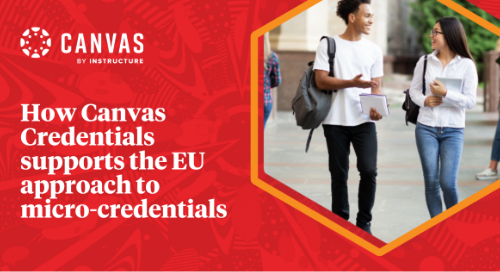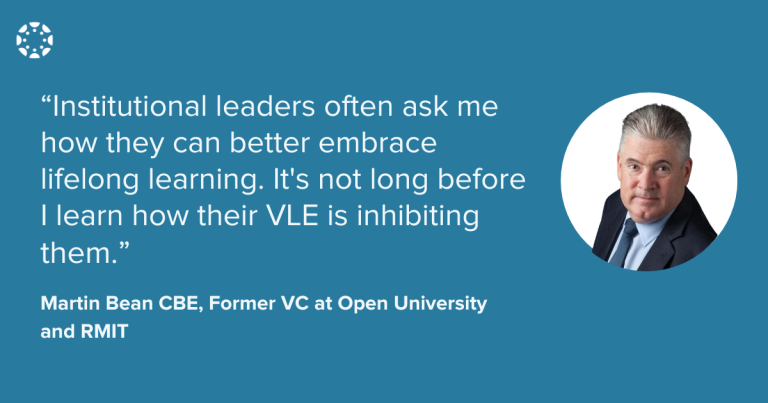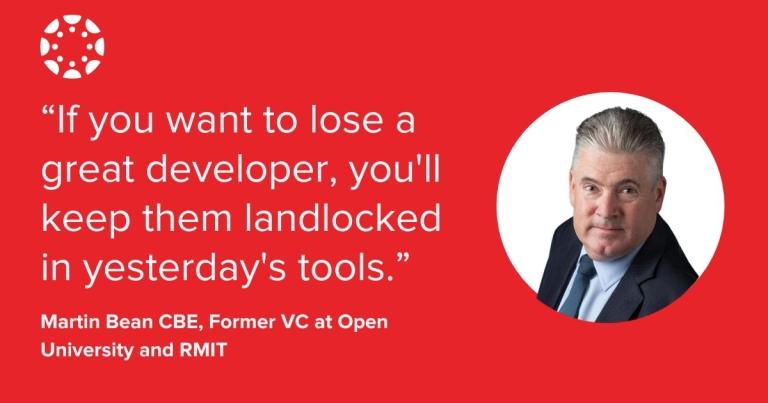
The European Economic Area has recently set out a common vision for its member states that promotes the development of a high-quality, inclusive and accessible digital education system. The goal is to enhance the competences, knowledge, and skills of the European population in line with the needs of the fast evolving labour market.
As part of this vision, the EEA has identified micro-credentials as a key area of focus that could help increase employment rates and promote lifelong learning.
What are micro-credentials and why do they matter?
Micro-credentials are mini digital certifications used to validate skills in a specific area. These short courses are more modular, flexible and narrower in focus than a degree. Some are designed as one-off learning experiences, others can be stacked to contribute to a qualification. Micro-credentials are not intended to undermine the value of a traditional degree; they are designed to build in-demand career skills with knowledge that is up-to-date and aligned with emerging practices.
COVID-19 brought on a rush of new developments and market expansion within Europe, which has created a demand for skilled labour, particularly in technology and sustainability. Employers and educators are working hard to fill the skills gap by creating opportunities for upskilling and reskilling people in line with these new demands. Education and training institutions have needed to adapt their offering to target a wider demographic. Micro-credentials as a short, accessible form of education have been identified as a key opportunity to engage the population in lifelong learning and meet the current demands for relevant skills and knowledge.
"An effective culture of lifelong learning is key to ensuring that everyone has the knowledge, skills, and competences they need to thrive in society, the labour market and their personal lives”—European Commission, 2022
At Instructure, we recognise that as the employment market evolves, so do the dynamics between education and employability. As more people are required to revisit, reskill and upskill over the course of their working life, the model of education shifts further towards the concept of lifelong learning.
The EEA’s labour market challenges has created an opportunity for them to reshape their future and unify their model for digital education by coordinating efforts with employers, educators and innovators, like Instructure.
In recent years, we have worked with our partners, institutions and global governments to develop the concept of lifelong learning, and we have invested in addressing their challenges with solutions. Our most recent product addition, Canvas Credentials, joins the Instructure Learning Platform, offering unlimited Open Badges and micro-credentials.
How does Canvas Credentials support the European recommended approach to micro-credentials?
The EEA wants to create a unified standard for issuing micro-credentials, and for them to be stackable, authenticated, and portable. To succeed, the EEA need both a standard specification and platform that is incredibly open and adaptable. Canvas Credentials (formerly Badgr) had a key contribution to the development of the Open Badge 2.0 standard and remains the most open badging platform in the market. As the world’s most open and inclusive digital credentialing network, Canvas Credentials can provide the EEA with a framework to inspire, motivate and engage people with a seamless and easily integratable system, which includes visual and stackable learning pathways.
When the Netherlands' National Research and Education Network (SURFnet) sought to implement their unified standard for issuing digital credentials, they chose Instructure. Credentials' open-source system, provided SURFnet with an unprecedented opportunity to scale their adoption of best practices and policy across their 100 institutions. Now over 750,000 students are able to gain and utilise micro-credentials.
Initiatives such as SURFnet’s show what could be possible across Europe. Our white paper, Education 3.0, gives an insight into the key components driving a shift towards competency-based education, micro-credentials, and a focus on the ways in which individuals can showcase their skills digitally.
At the root of the Education Commission’s aims and recommendations is a vision to improve the quality of life in the EU overall. Access to digital education and qualifications will create outreach to more groups. Skills advancement will lead to more employment opportunities for everyone, but opportunities alone won’t guarantee engagement to fulfil this vision. The EU needs the right tools to create learning opportunities for everyone, that’s why Canvas Credentials is not only open, it is accessible. We have and continually develop automated features and assistive technologies such as screen readers and keyboard testing to support and meet the needs of ALL learners.
As we’ve explored, micro-credentials are an incredible opportunity for the EEA to address the skills gap in the current labour market. The unified efforts of the EEA to create a standard, open badging process will help educators and employers validate skills and motivate learners to continue acquiring them. Instructure are invested in shaping the future of learning and equipping educators with the tools to forge it.
Related Content

Blogs
 canvas_he_-_webinar_2.png
canvas_he_-_webinar_2.pngBlogs
 canvas_he_-_webinar_1.jpg
canvas_he_-_webinar_1.jpgBlogs